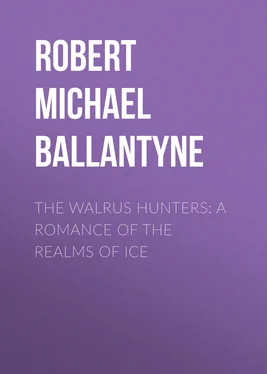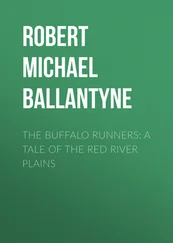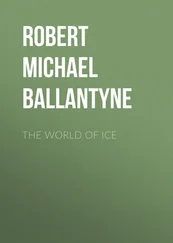Robert Michael Ballantyne - The Walrus Hunters - A Romance of the Realms of Ice
Здесь есть возможность читать онлайн «Robert Michael Ballantyne - The Walrus Hunters - A Romance of the Realms of Ice» — ознакомительный отрывок электронной книги совершенно бесплатно, а после прочтения отрывка купить полную версию. В некоторых случаях можно слушать аудио, скачать через торрент в формате fb2 и присутствует краткое содержание. Жанр: Детские приключения, literature_19, foreign_antique, foreign_prose, foreign_children, на английском языке. Описание произведения, (предисловие) а так же отзывы посетителей доступны на портале библиотеки ЛибКат.
- Название:The Walrus Hunters: A Romance of the Realms of Ice
- Автор:
- Жанр:
- Год:неизвестен
- ISBN:нет данных
- Рейтинг книги:3 / 5. Голосов: 1
-
Избранное:Добавить в избранное
- Отзывы:
-
Ваша оценка:
- 60
- 1
- 2
- 3
- 4
- 5
The Walrus Hunters: A Romance of the Realms of Ice: краткое содержание, описание и аннотация
Предлагаем к чтению аннотацию, описание, краткое содержание или предисловие (зависит от того, что написал сам автор книги «The Walrus Hunters: A Romance of the Realms of Ice»). Если вы не нашли необходимую информацию о книге — напишите в комментариях, мы постараемся отыскать её.
The Walrus Hunters: A Romance of the Realms of Ice — читать онлайн ознакомительный отрывок
Ниже представлен текст книги, разбитый по страницам. Система сохранения места последней прочитанной страницы, позволяет с удобством читать онлайн бесплатно книгу «The Walrus Hunters: A Romance of the Realms of Ice», без необходимости каждый раз заново искать на чём Вы остановились. Поставьте закладку, и сможете в любой момент перейти на страницу, на которой закончили чтение.
Интервал:
Закладка:
Cheenbuk had now dropped into one of his frequent reveries, or trains of thought, in which he was apt to forget all that was going on around him, and he did not waken from it until, the burial being concluded, one of the Indians touched him on the shoulder and pointed to Magadar, who had shouldered his gun and was entering the bushes.
Understanding this to be a command to follow, he stepped out at once. The others fell into line behind him, and thus, bound and a captive, our Eskimo turned his back finally—as he believed—on what we may style his native home—the great, mysterious northern sea.
Chapter Seven.
Flight and Misfortune
While the scene we have described was being enacted, the other Indians, who had crossed the neck of land for the purpose of cutting off the men in the kayaks, failed in the attempt, partly owing to the distance being greater than their memories had assigned to it, and partly to the great speed of the kayaks when propelled by strong men fleeing for their lives.
All the kayaks were well out of gunshot range when the shore was reached, except one which lagged behind. At this one the Indians discharged several volleys, but without effect, and soon after, it also was beyond range.
The little vessel which thus lagged behind belonged to the unfortunate Gartok, whose leg, it will be remembered, was wounded by one of the balls discharged by Alizay. Despite his energy, and desperate though the situation was, Gartok could not overcome the depressing influence of pain and haemorrhage. He fell gradually behind the others, each of whom was too anxious about his own safety to think much of his comrades.
When the firing ceased and the flotilla was well out of range, Gartok laid down his paddle and bound up his wounded limb with some scraps of seal-skin; at the same time, hailing the kayak nearest to him. As soon as it was discovered that their chief was wounded, all the Eskimos came clustering round him. Among them was his lieutenant Ondikik.
“You also are wounded,” said Gartok, observing the pallor of his face.
“Yes; I can find no arrow, but there is blood.”
“Is it bad?” asked the chief, with an angry exclamation at their misfortune.
“I cannot tell,” replied Ondikik, “but—”
He finished the sentence in the most expressive manner by fainting dead away, and falling over to one side so heavily that he would have infallibly upset the little craft if his comrades had not been close at hand to prevent that catastrophe.
“Hail the oomiak!” cried Gartok, in a voice that, for him, felt singularly feeble. “Put him into it, and let two of the women change with two of the men.”
In a few minutes the women’s large open boat was alongside, and poor Ondikik was, with some difficulty, transferred to it. Two men then gave up their kayaks to two of the women, and took their places in the oomiak. While this was being done some of the people gave a shout of alarm, for it was observed that Gartok himself had quietly fallen back in a state of insensibility.
The men, therefore, lifted him also out of his kayak and laid him beside his lieutenant.
This accomplished, the little fleet paddled out to sea, and they soon lost sight of the Arctic shore. They did not again pause until they reached a group of small islets, on one of which they encamped for the night.
Fortunately the weather at this time was calm and warm, so that those hardy inhabitants of the icy north required no better lodging or bed than the cold ground, with the star-spangled sky for curtains. With lamps flaring, seal-steaks and wild-fowl simmering, and hot oil flowing, they quickly made themselves comfortable—with the exception, of course, of the warlike Gartok and the hot-headed Ondikik. These two, being fellow-sufferers, were laid beside each other, in order, perhaps, to facilitate mutual condolence. To do them justice, they did not grumble much at their fate, but entertained each other with a running commentary on the events of the day.
“And that is strange news that my old mother tells me,” resumed Gartok, after a short pause in the conversation. “Cheenbuk must have given the Fire-spouters sore heads from the way he gripped them.”
“I wish I had been there,” growled Ondikik.
“I’m glad I was not there,” returned Gartok. “I could not have saved him from so many, and it would not have been pleasant to go into slavery—if not to torture and death. Poor Cheenbuk! he was ever against war—yet war has been forced on him. I fear we shall never see him again. Hoi! my leg is bad. I can’t understand how the Fire-spouters could hit it without the little thing going through my back first.”
“I wish all the Fire-spouters were deep in the inside of a whale’s belly,” growled Ondikik, whose wound was beginning to render him feverish and rusty. “Arrows and spears can be pulled out, but when the little spouter things go in we don’t know where they go to. They disappear and leave an ugly hole behind them.”
At this point Raventik, on whom the command had devolved, came forward with a choice piece of juicy walrus blubber on a flat stone for a plate.
“Our chiefs will eat,” he said, “it will do them good—make their hearts strong and ease the wounds.”
“No,” said Gartok decisively, “none for me.”
“Take it away!” cried the other sharply.
“No?” exclaimed Raventik in surprise. You see, he had never in his life been wounded or ill, and could not understand the possibility of refusing food, except when too full of it. Being a sympathetic soul, however, he pressed it on the invalids, but received replies so very discouraging that he was induced to forbear.
Old Uleeta turned out to be a more intelligent, it not more kindly, nurse. After she had eaten her supper and succeeded in bolting the last bite that had refused to go down when she could eat no more, she came forward with a bladder full of water, and some rabbit-skins, for the purpose of dressing the wounds.
“Gently, mother,” said Gartok with a suppressed groan, “you lay hold of me as if I were a seal.”
“You are quite as self-willed, my son,” replied the old woman. “If you had not gone out to fight you would not have come back with a hole in your leg.”
“If I had not come into the world I should not have been here to trouble you, mother.”
“There’s truth in that, my son,” returned the woman, as if the idea were new to her.
At this Ondikik groaned—whether at the contemptibly obvious character of the idea, or at ideas in general, or in consequence of pain, we cannot tell.
“You said, mother, that Cheenbuk gave them a good deal of trouble?”
“Ay, he gave them sore hearts and sore bodies.”
“They deserved it! what right had they to come with their fire-spouters to attack us?”
“What right had you to go without your fire-spouters to attack them ?” demanded old Uleeta, somewhat maliciously.
Gartok, who was destitute neither of intelligence nor of humour, laughed, but the laugh slid into a most emphatic “hoi!” as his mother gave the leg a wrench.
“Softly, mother, softly! Treat me as you did when I was so big,” he exclaimed, indicating about one foot six between his hands.
The old woman chuckled, or rather “hee! hee’d!” a little and continued:
“Yes, Cheenbuk fought like a bear. We could not see him, for they were all on top of him at once, but hi! how he made them heave! I wonder they did not use their knives.”
“They felt sure they had him,” said her son, “they wanted to drive him to their huts and kill him slowly to amuse their women.”
This was such a horrible idea that the old woman became unusually grave.
“These Fire-spouters are worse than white bears,” she said, “for these never torture other beasts, though they often kill them.”
Читать дальшеИнтервал:
Закладка:
Похожие книги на «The Walrus Hunters: A Romance of the Realms of Ice»
Представляем Вашему вниманию похожие книги на «The Walrus Hunters: A Romance of the Realms of Ice» списком для выбора. Мы отобрали схожую по названию и смыслу литературу в надежде предоставить читателям больше вариантов отыскать новые, интересные, ещё непрочитанные произведения.
Обсуждение, отзывы о книге «The Walrus Hunters: A Romance of the Realms of Ice» и просто собственные мнения читателей. Оставьте ваши комментарии, напишите, что Вы думаете о произведении, его смысле или главных героях. Укажите что конкретно понравилось, а что нет, и почему Вы так считаете.












